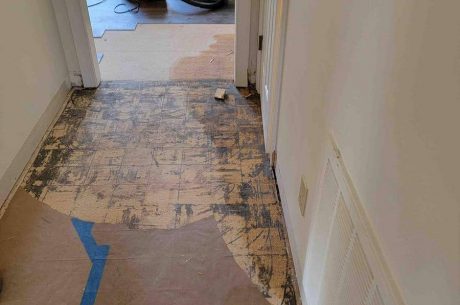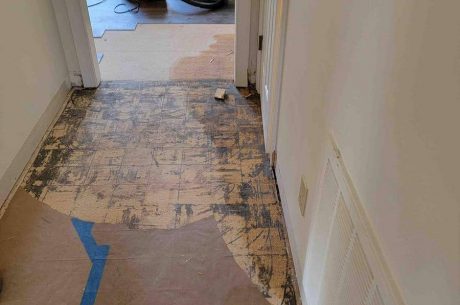Water damage can be a homeowner’s worst nightmare, leading to expensive repairs and significant disruption. Whether it’s from a burst pipe, a leaking roof, or a natural disaster, water damage can cause chaos in your home. Knowing what your insurance covers is important for residents needing water damage restoration Greer SC or in any other location. This guide will help you understand whether homeowners insurance covers water damage and how to navigate the claims process. So, does homeowners insurance cover water damage? Let’s find out!
Homeowners Insurance Water Damage Coverage
Homeowners insurance is designed to protect your home from unexpected events, including some types of water damage. The answer on whether homeowners insurance covers water damage depends on the specifics of your policy and the nature of the damage. Homeowners’ insurance typically covers sudden and accidental water damage. However, it usually does not cover gradual damage that happens over time, like a slowly leaking faucet that causes mold.
Common Scenarios Covered by Homeowners Insurance
Understanding what types of water damage are covered by homeowners insurance can help you prepare for potential issues. Here are some common scenarios that are typically covered:
- Burst Pipes: If a pipe bursts unexpectedly and causes water damage to your home, your insurance is likely to cover the repairs.
- Accidental Overflow: If your washing machine or dishwasher overflows and causes damage, this is usually covered.
- Storm-Related Damage: Damage from rain or snow that enters your home due to a storm can be covered, as long as it’s not due to neglect or lack of maintenance.
So, does home insurance cover water damage? Yes, but it depends on the cause and circumstances.
Does Homeowners Insurance Cover Water Damage? What It Typically Doesn’t Cover
While homeowners insurance covers many types of water damage, there are some common exclusions. If you understand these exclusions you can avoid unpleasant surprises when you file a claim.
- Flood Damage: Standard homeowners insurance policies do not cover flood damage. For flood coverage, you need a separate flood insurance policy. FEMA provides information and resources on flood insurance. Floods can cause extensive damage to both the structure and contents of your home, and without flood insurance, you could face significant out-of-pocket costs.
- Negligence: If the water damage happened because of your negligence, such as failing to fix a known issue or not doing regular maintenance, your claim may be denied. For example, ignoring a small leak under your sink that eventually causes mold and structural damage could be considered negligence.
- Sewer Backups: Sewer backups can result in significant water damage and potential health risks due to contaminated water. Damage from sewer backups is usually not covered unless you have specific sewer backup coverage.
Average Insurance Payout for Water Damage
The average insurance payout for water damage varies depending on the severity and cause of the damage. According to industry data, the average claim for water damage ranges from $2,000 to $10,000. However, severe cases can result in much higher payouts. Several factors can influence the amount of your payout, including the extent of the damage, the cause of the water damage, and the specifics of your insurance policy.
Read About – Selling A Water Damaged House
How to Get Insurance to Pay for Water Damage
When water damage happens, taking the right steps can make a big difference in getting your insurance to pay for the repairs. Here are some tips:
Immediate Action
As soon as you notice water damage, take immediate action to prevent further damage. This may include turning off the water supply, removing valuable items from the affected area, and calling a professional for emergency repairs.
Documentation
Document the damage thoroughly. Take photos and videos of the affected areas and keep receipts for any emergency repairs. This documentation will be necessary when filing your claim.
Contact Your Insurance Company
Notify your insurance company as soon as possible. Provide them with all the necessary documentation and be prepared to answer questions about the cause and extent of the damage.
Filing a Water Damage Insurance Claim
Filing a water damage insurance claim can be a complex process, but following these steps can help you have a smooth experience:
- Detailed Process: Start by contacting your insurance company and providing them with detailed information about the damage. This includes when and how the damage occurred, what areas of your home were affected, and any steps you took to minimize the damage.
- Water Damage Insurance Claim List: Your insurance company may provide you with a water damage insurance claim list, which outlines the information and documents needed to process your claim. Make sure to follow this list carefully and provide all requested information.
- Adjuster Visit: An insurance adjuster will likely visit your home to assess the damage. Be prepared to show them the affected areas and provide any additional documentation they may need.
Avoiding Common Mistakes in Water Damage Claims
Avoiding common mistakes during the claims process can help your claim get approved and you receive the maximum payout. One of the most common mistakes homeowners make is failing to document the damage thoroughly. Without proper documentation, your claim may be denied or reduced. Another common mistake is not reporting the damage quickly.
Contact PuroClean of Greer for All Your Water Damage Needs
If you’re facing water damage in your home, don’t wait to seek help. The experienced professionals at PuroClean of Greer are ready to assist you with all your water damage restoration needs. From initial assessment and cleanup to full restoration, we provide detailed and successful solutions. Contact us today at (864) 523-6633 or fill out an online form on our website.



